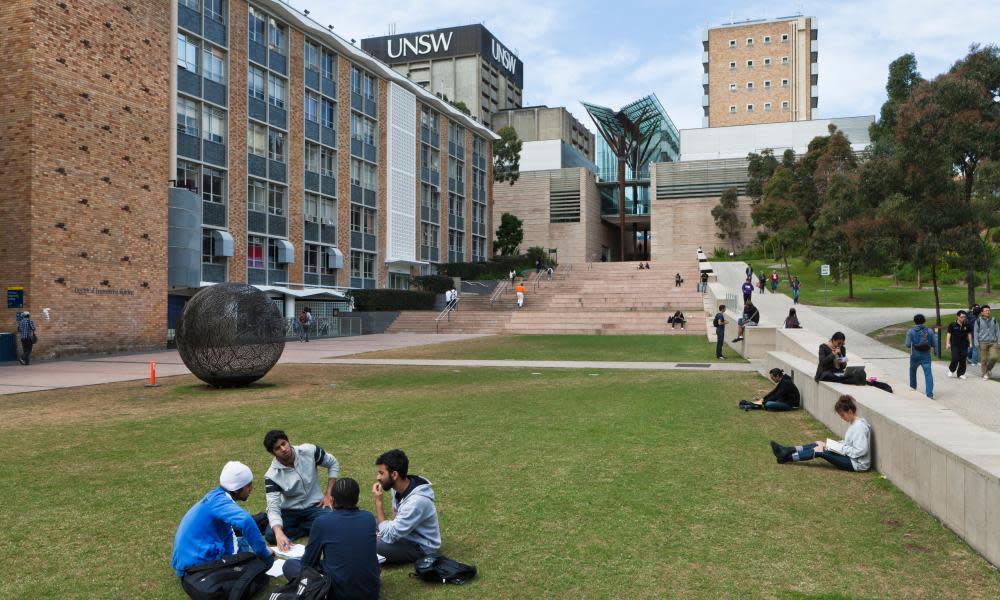UNSW criticised for letter in Chinese with no mention of freedom of speech

The University of New South Wales has been criticised for issuing a letter in Chinese that differs from a letter in English explaining its deletion of a tweet that was critical of China’s human rights abuses.
On Wednesday, the vice-chancellor of the university, Prof Ian Jacobs, apologised for the university’s deletion of a tweet that quoted Elaine Pearson, the Australian director of Human Rights Watch and an adjunct academic at the university.
Jacobs wrote that the university had an “unequivocal commitment to freedom of expression and academic freedom” and the tweet “should not have been removed”.
But an earlier letter, written in Chinese, released on Monday and signed by Laurie Pearcey, the executive officer of UNSW Global, contained no apology for deleting the tweet, and no mention of freedom of speech or academic freedom.
Last Friday, the university published an online news story in which Pearson said the international community should “put pressure on China to wind back infringements on human rights” and the United Nations should establish a special envoy to monitor the decline of human rights in Hong Kong.
After protests from Chinese students, a tweet from the university’s official account that linked to the news article was deleted.
In an email to staff on Wednesday, Jacobs wrote that the deletion was “a mistake”, but said it had been removed because the social media post “appeared to represent a UNSW view, rather than the view of an individual”.
“The tweet should not have been removed”, he wrote. “I apologise for this mistake … There is no excuse for our failure in this instance but an explanation is warranted.
“In order to protect our role as a place where all views can be expressed, UNSW as an institution does not take a position on political issues. On this occasion the tweet was removed as it appeared to represent a UNSW view, rather than the view of an individual.”
“At UNSW, we will continue to acknowledge and learn from our mistakes,” he wrote. “Members of our community can be assured that their right to freedom of expression is no different at UNSW to anywhere else in Australia.”
However, the letter from Pearcey was shorter and made no mention of freedom of speech, academic freedom or an admission that the tweet “should not have been removed”.
“The article expressed the views of a part-time lecturer and was forwarded to the school’s official social media platform,” Pearcey wrote, according to a translation by the Guardian. “Therefore the tweet was mistaken as representing the views of the University of New South Wales.
“UNSW does not take any political stance, so any political views expressed by its staff or relevant personnel of the school cannot represent the position of the school. Because its content was misleading, the tweet has been deleted by the school.
“We are deeply disturbed by the trouble this incident has caused to you. Thank you for your understanding”.
Chinese-Australian artist Badiucao wrote that the letter from Pearcey in Chinese was “totally opposite” to Jacobs’s letter in English.
📚@UNSW‘s apology in Chinese language is totally oppsite to its English version.
It says a big SORRY to China for posting @PearsonElaine‘s HK article on UNSW’s twitter.
The Chinese version issued by Laurie Pearcey, Chief Executive Officer of UNSW Global Pty.
Again, used by GT. pic.twitter.com/cFUa9Y1EyN— 巴丢草 Badiucao (@badiucao) August 6, 2020
UNSW has been contacted for comment.
– Additional reporting by Pei Lin Wu

 Yahoo News
Yahoo News 
